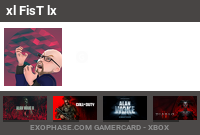The battle for net neutrality changed today with the FCC’s ruling. Running my own internet radio station along with being an avid internet user for gaming, purchasing goods and service as well as just about every social media aspect of my life, makes this a pretty big deal to me as it should you. Here is a video I think you all should watch along with a quick snipet from CNET.
After more than a year of palace dramas worthy of a Shakespeare play, the FCC voted this morning to impose new rules on Internet access providers aimed at “preserving the open Internet.”
Today’s action is both anticlimactic and incomplete. Despite soap opera hand-wringing the last three weeks from fellow Democratic
commissioners, there was little doubt that Chairman Julius Genachowski had the votes he needed to pass this most recent version of the so-called “Net neutrality” rules, which he introduced on December 5. The two Republican commissioners strongly dissented from today’s vote.
But the commission, in part to incorporate the separate opinions of the commissioners, did not actually publish its order, which has been circulating inside the agency. Rumors are that the final document is close to 100 pages.
Different treatment for wired and wireless Internet
Still, the agency hinted today at the most important contents. The commission will impose three new rules on Internet access providers, a category that will be defined in the final order.The rules prohibit access providers from blocking lawful content, applications, services, or nonharmful devices. (Blocking illegal fire sharing, which, in part, kicked off the latest version of this long-running drama, is not prohibited.) New transparency rules will require access providers to disclose the details of their network management techniques, something no consumer will likely be able to understand.
And, for Internet access provided by the cable or telephone infrastructure, traffic management that “unfairly discriminates” against particular content will be prohibited.
Wireless broadband, owing to the current limits of the wireless infrastructure, is exempt from that rule. It is also subject to a more limited blocking rule, one that would allow providers to continue operating “app stores” that require prequalification.

